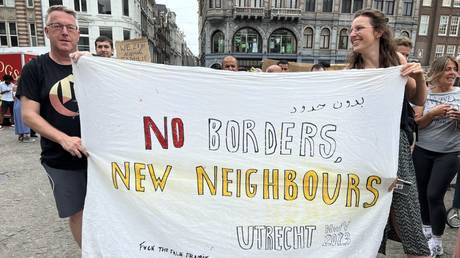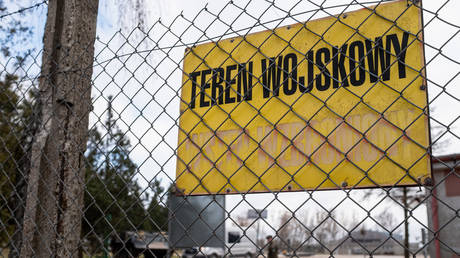
Frontex head Hans Leitjens wants a more “humane” migration policy
The European Union needs to focus on blocking illegal crossings while making it easier for asylum-seekers and economic migrants to come in, the new head of the bloc’s border protection agency Frontex, Hans Leitjens, has said.
On Tuesday, the German outlet Berliner Zeitung reported on the quotes Leitjens gave to another publication, Die Welt, the day before. Rather than simply implementing the EU’s migration rules, the Dutch official has advocated for “more humanity” and less “xenophobia and prejudice.”
”Nothing can stop people from crossing a border, no wall, no fence, no sea, no river,” Leitjens told Die Welt. He described the bloc’s immigration policy as “a lot of wishful thinking and an often exaggerated choice of words.”
Frontex is the fastest-growing EU agency. Its budget went from €364 ($395) million in 2020 to €859 ($932) million, while its staff has nearly doubled, from 1,200 to 2,200. Its “standing corps” is supposed to be the EU’s first uniformed and armed police force, to number 10,000 by 2027.
Leitjens, 60, is a former lieutenant-general in the Dutch police who used to command a Dutch security mission in Afghanistan and fight corruption in the Caribbean, among other things. He was appointed director-general of Frontex in December 2022, with the mission of establishing “secure and well-functioning external borders” of the EU.
”Sometimes it is pretended that you can simply put a cap back on the bottle and then the migration will be stopped. But that is a misconception,” he said. Instead of turning back immigrants on the borders and the high seas, or swiftly deporting those whose asylum claims are ruled groundless, Leitjens has proposed a four-step plan for “good border management.”
Step one is a crackdown on people-smuggling and illegal crossings, while opening up legal immigration. Step two would be ending “alarmism” and “superficial preoccupation” with migration, which “is a reality,” he said. Step three is to ensure the EU knows exactly who is coming in, important from the security standpoint. Step four would be properly processing asylum applicants and deporting those who fail, because “the rule of law prevails here.”
Last November, the European Parliament passed amendments to the Common European Asylum System (CEAS), seeking to curb illegal immigration. The changes call for processing asylum-seekers at the external border and deporting failed applicants immediately.
More than a million people applied for asylum in the EU last year, most of them in Germany, almost reaching the 1.3 million record from 2015. Though around half of the applicants were rejected, only one in five have been deported, because their countries of origin refuse to take them back. Meanwhile, in 2023 Frontex registered 380,000 “irregular” border crossings into the EU, a 17% increase over the previous year.
”This talk of ‘stopping people’ and ‘closing borders’ cannot be our narrative all the time. My job is to create a balance between effective border management and compliance with fundamental rights,” Leitjens told Die Welt.
He is willing to make deals with Tunisia, Morocco and Egypt, because the EU “depends on the capabilities and will of these countries” to combat “irregular migration.” In return, Brussels “must provide something in return: visa facilitation, more legal routes into the EU, and economic support,” Leitjens added. He has ruled out negotiations with Libyan militias, however, describing them as human rights violators and potential war criminals.




